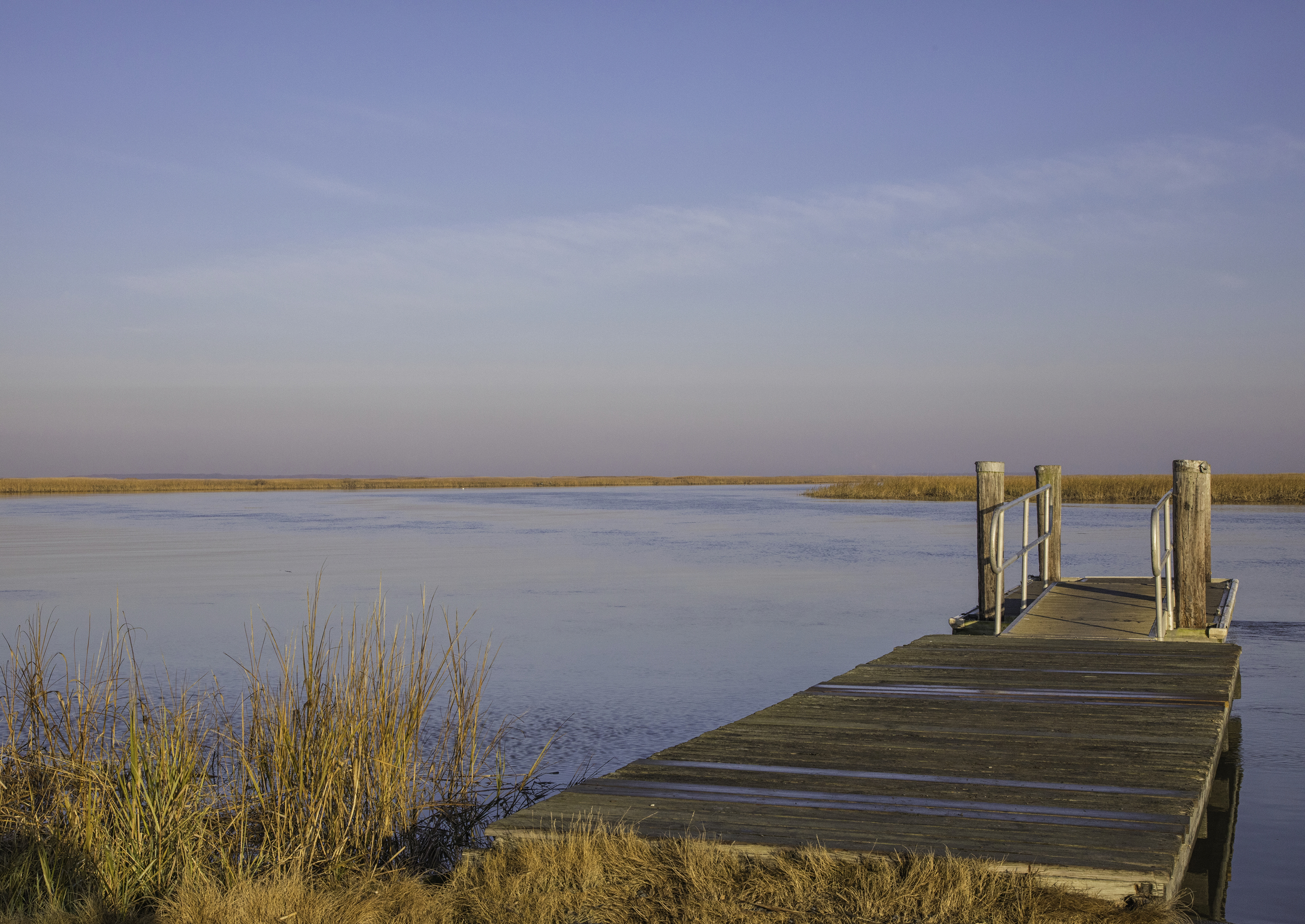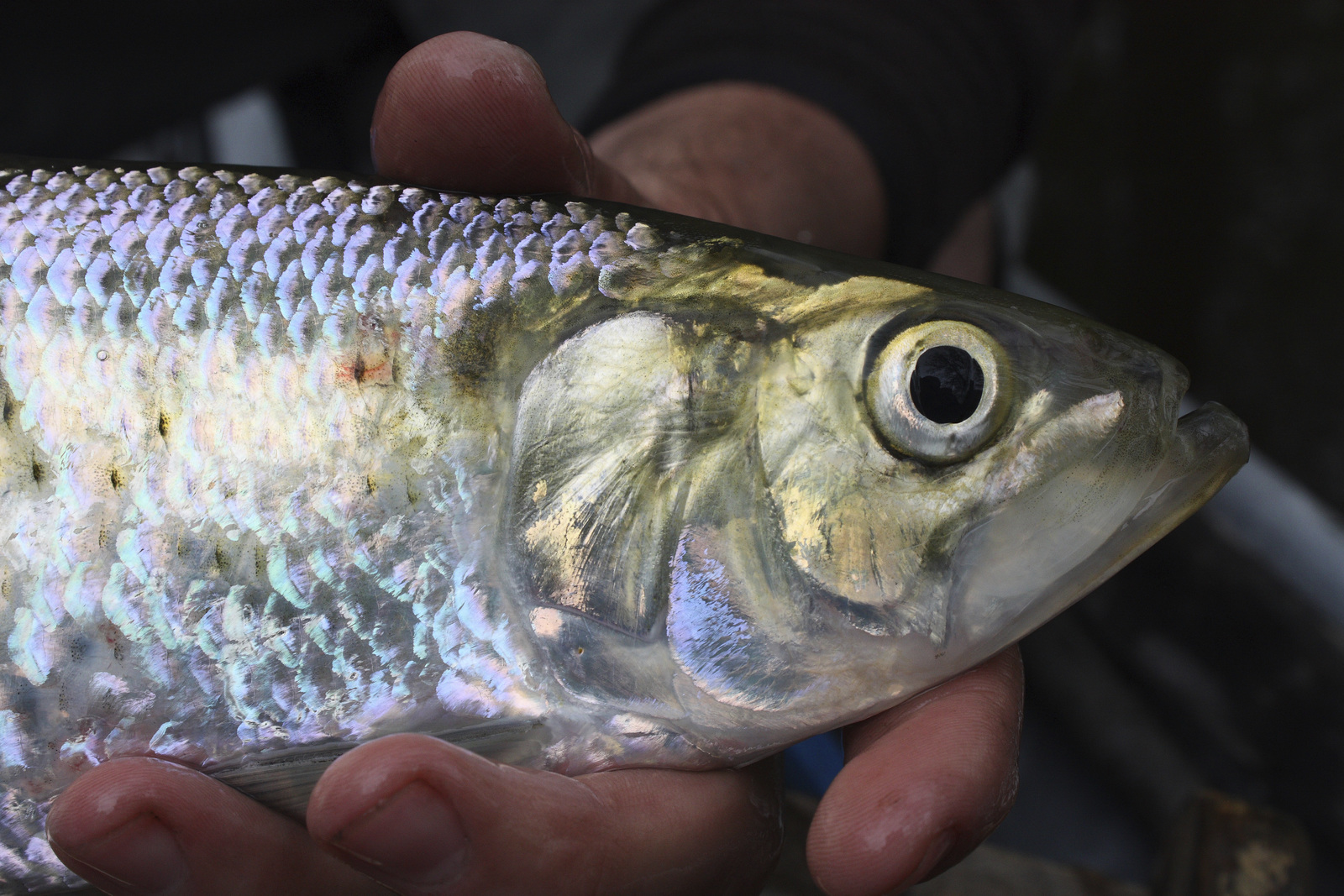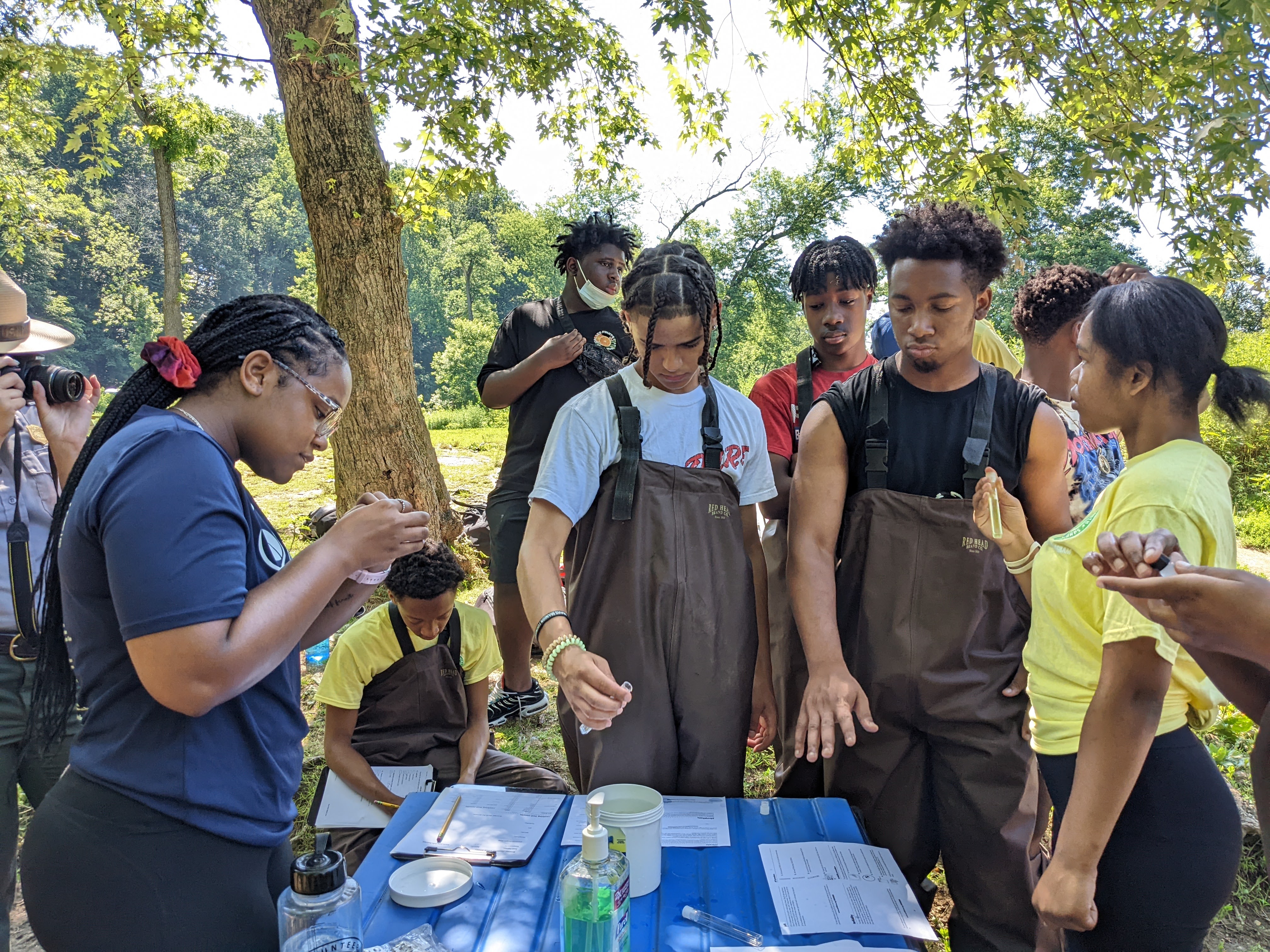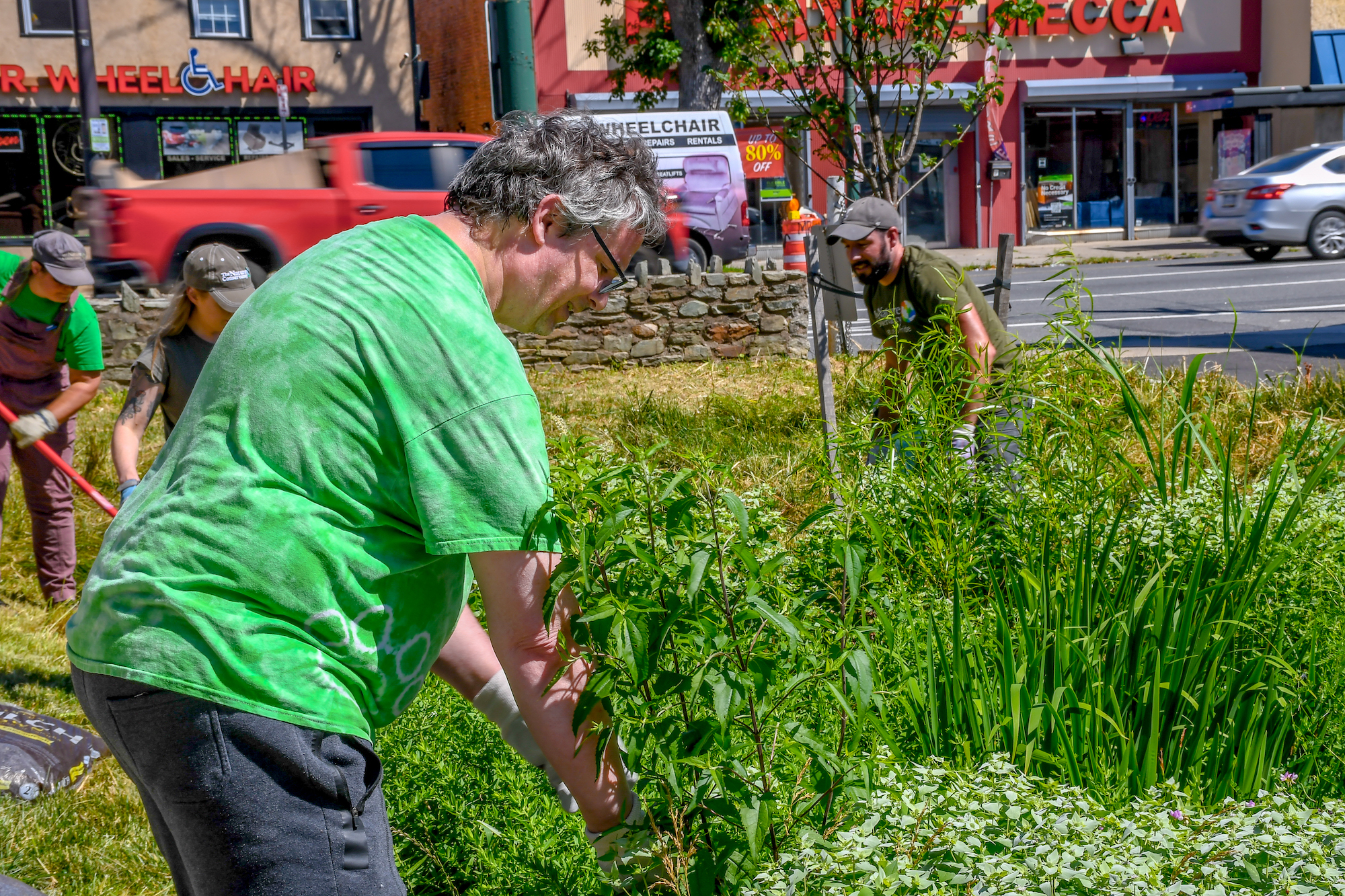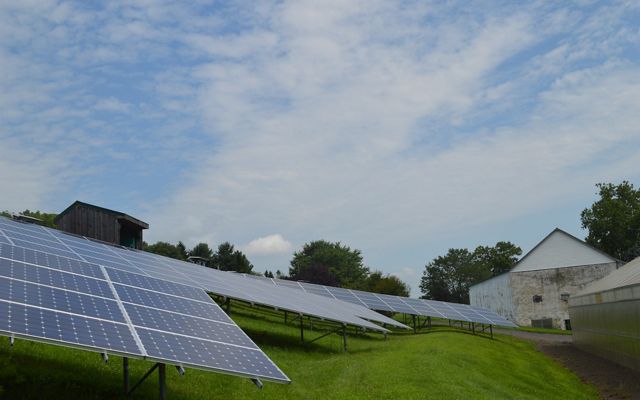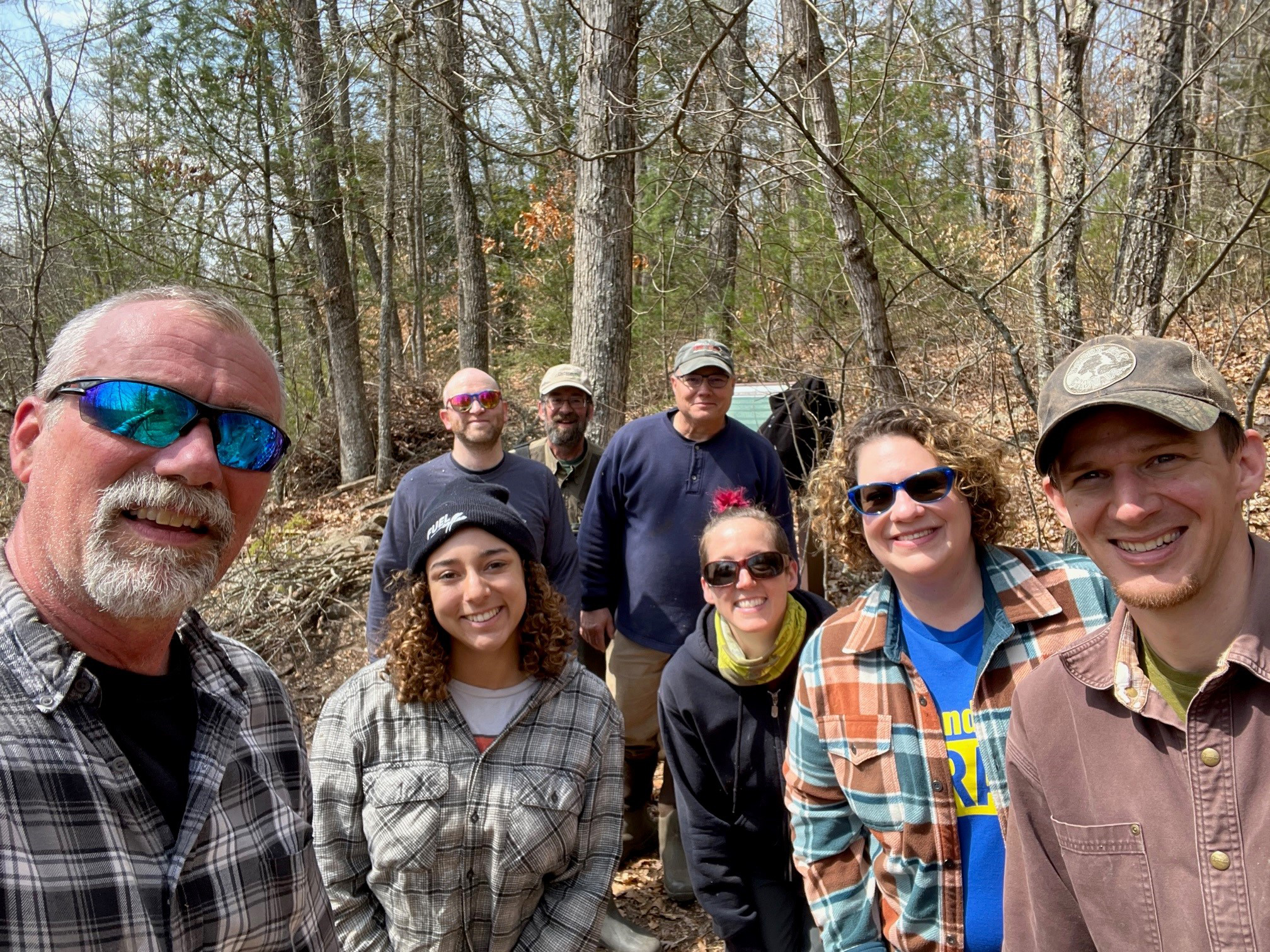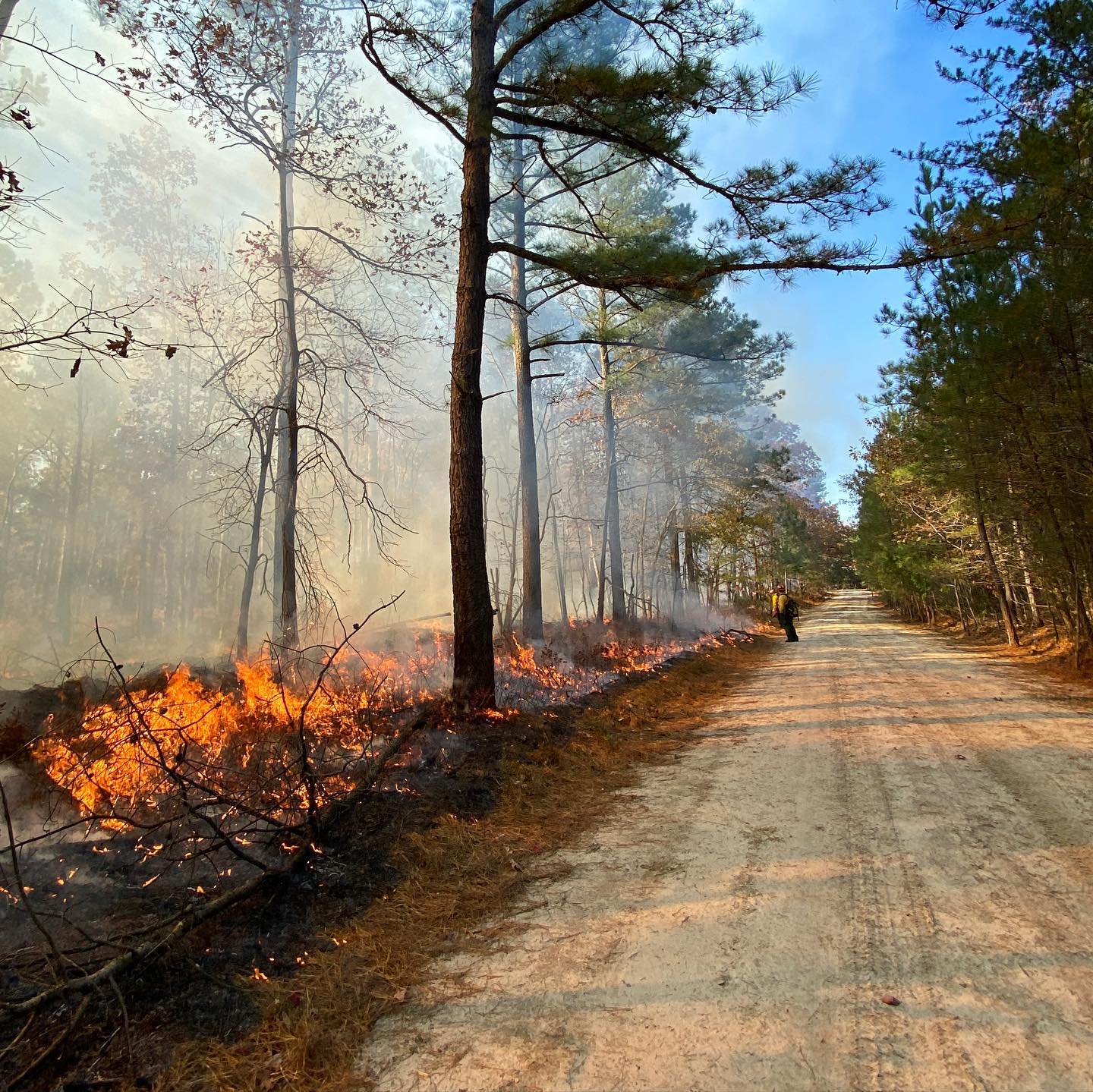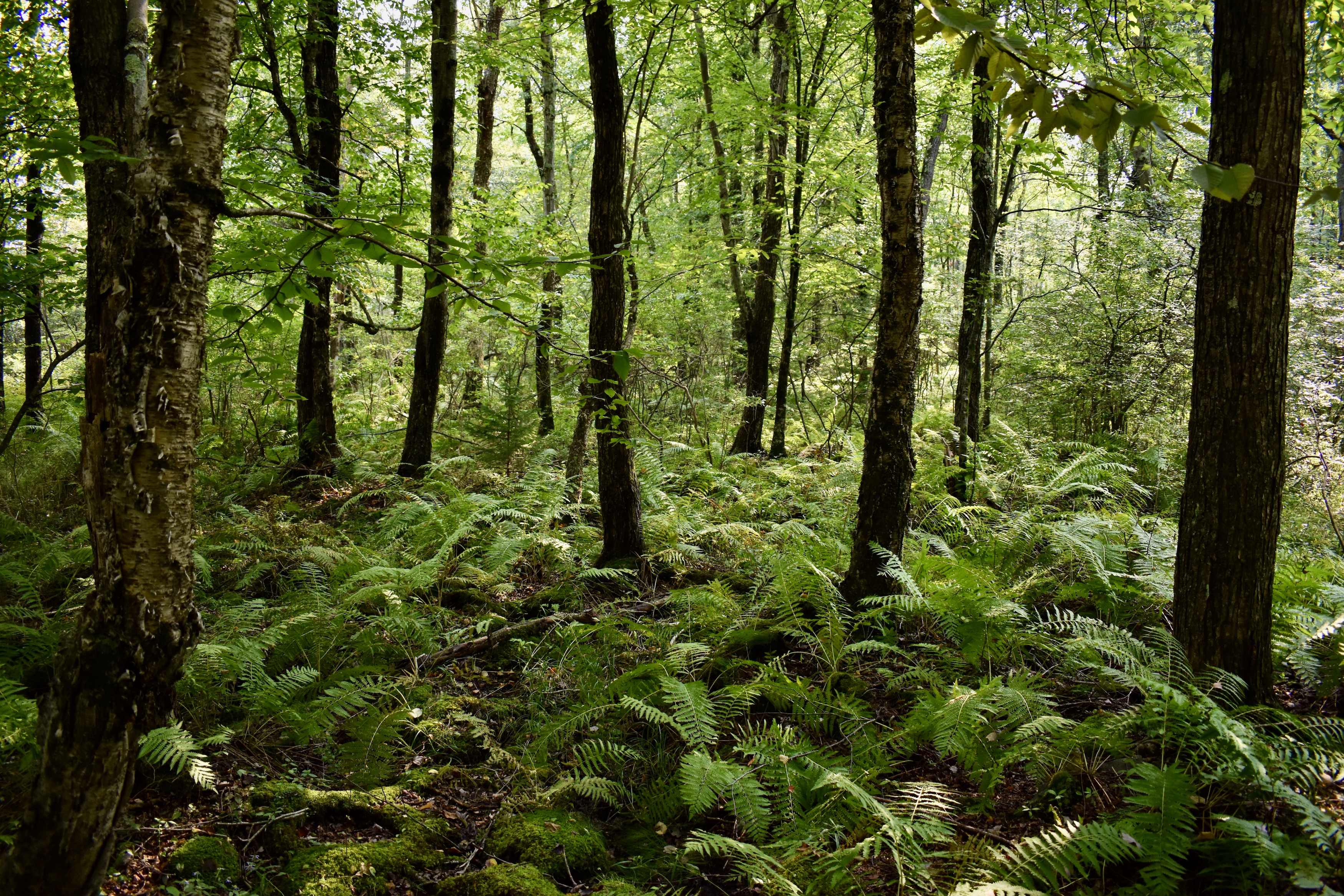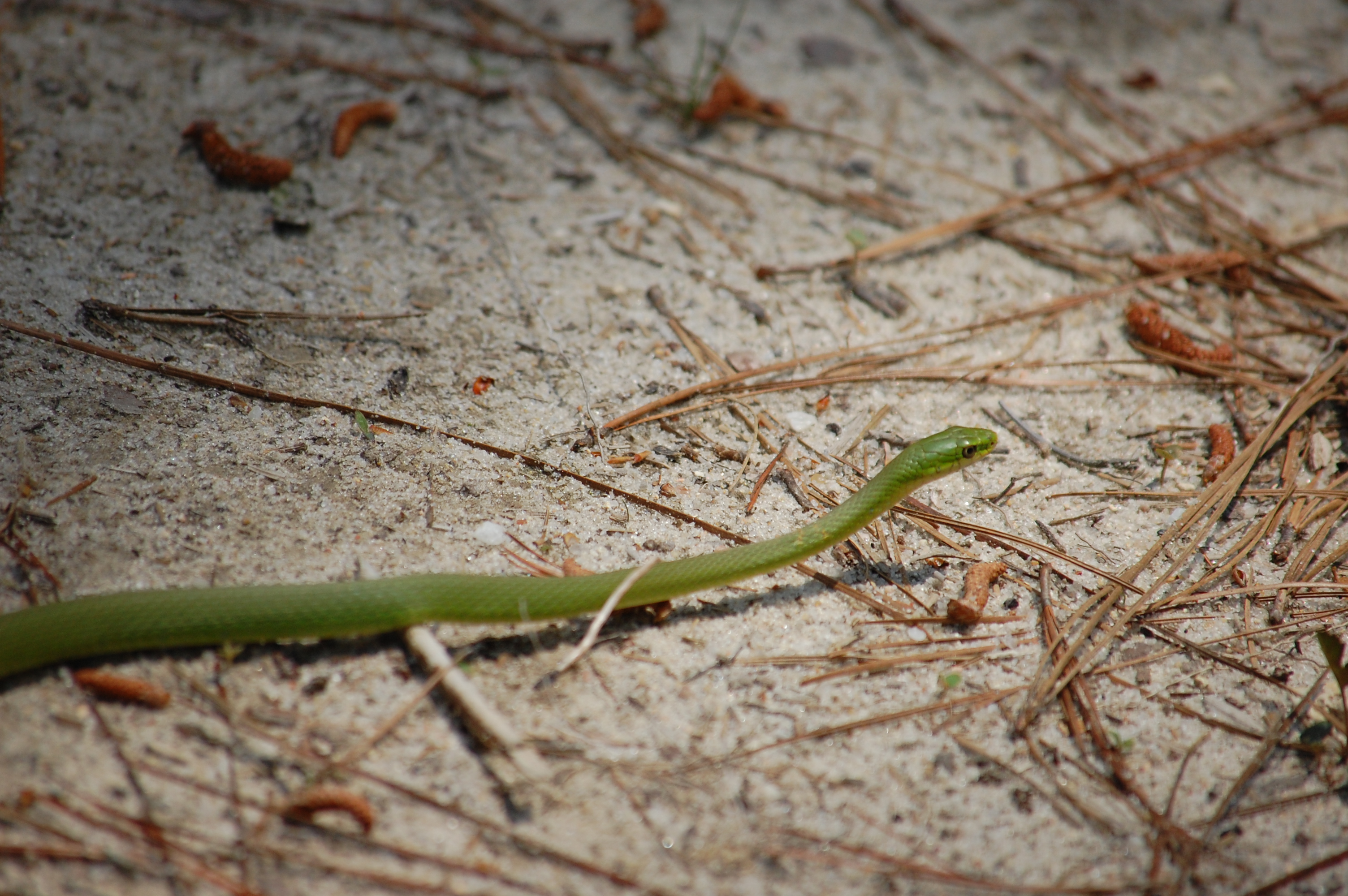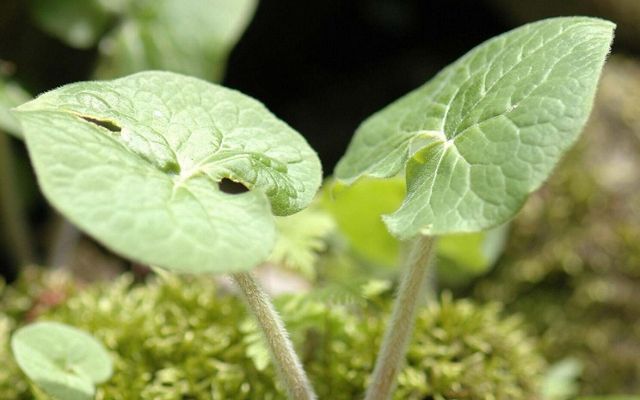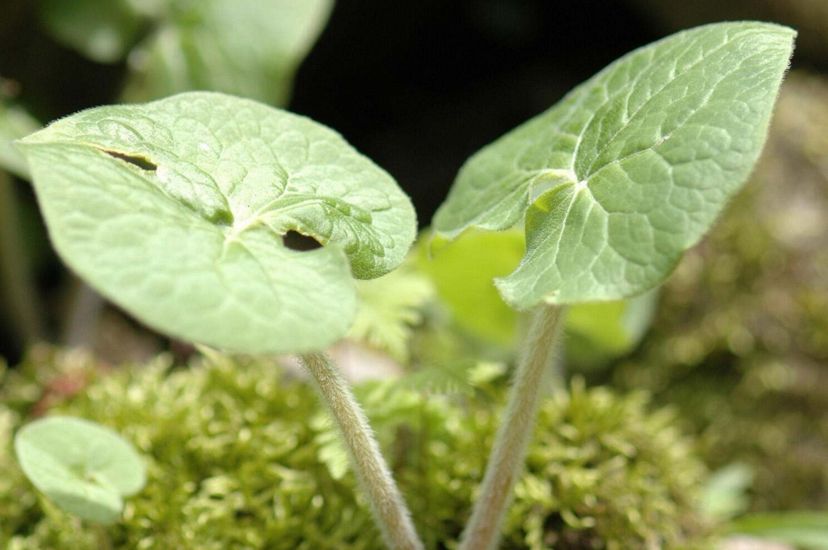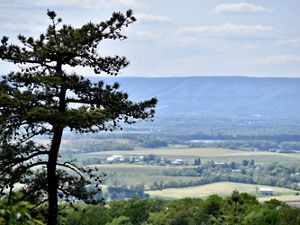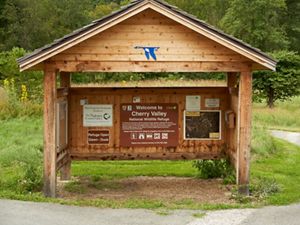
PA/DE 2022 Impact Report
2022 was an important year for conservation. There is much to celebrate and much more work to do.

From the Executive Director
Every conservation story told is made possible thanks to donors like you.
What a year! 2022 has delivered historic legislation on climate action in Pennsylvania and Delaware and at the federal level. In just 12 months, we’ve seen significant climate action that will go a long way toward achieving TNC’s 2030 goals: driving down emissions, protecting our lands and waters, building strong communities and enhancing equitable outcomes. These recent victories are worth celebrating, and your support makes our local-to-global work possible. Thank you!
Of course, there is much more to be done. We are facing the biggest, most complex challenges of our lives. And that calls for our biggest, most ambitious plans. Here in Pennsylvania and Delaware, we’re developing creative approaches to conservation and implementing best practices to ensure that we meet the moment in order to address the environmental challenges before us. We are hard at work incorporating our most recent set of strategic initiatives, including an important focus on diversity, equity, inclusion and justice. We’re prioritizing community outreach, reaching across aisles and forging long-term partnerships so that we can make durable, lasting progress in support of TNC’s 2030 goals.
This year’s report is full of exciting highlights: the completion of our green stormwater infrastructure project at the Holmesburg Baptist Church in Northeast Philadelphia; successful reforestation efforts along the Kittatinny Ridge in the Appalachians; big state policy wins in Harrisburg and Dover; a first-ever leadership hire for Delaware’s Oceans and Coasts program and so much more. I often like to highlight the importance of resiliency—both within ourselves and our natural spaces—and the sheer breadth and scope of our recent work demonstrates that our chapter has emerged from these two pandemic-impacted years stronger than ever before.
From managing our forests to improving our water quality to improving green infrastructure in our cities, TNC’s science-based approach is made possible through the tireless efforts of our staff, our volunteers, our partners, our dedicated Board of Trustees and you. Your commitment to The Nature Conservancy in Pennsylvania & Delaware is a tangible investment for today and a legacy for future generations.
Please join us as we create a stronger tomorrow together.
Yours in Conservation,
Lori Brennan, Executive Director
Chairman's Letter
2022 has been an eventful and important year for conservation here in Pennsylvania and Delaware. Even as our lands and waters continue to face significant challenges—many of which are the direct result of climate change—I’m optimistic that we can come together and find innovative solutions. Like you, I’m passionate about this work, and your support for our work grows more essential each day.
This year, we’ve seen tremendous progress within our chapter. Our Board of Trustees is becoming more diverse in its expertise and composition in order to represent our constituents across our area. As a group, we are committed to implementing the principles of diversity, equity, inclusion and justice into our work. We’ve also welcomed new staff members to the team, all of whom are already making a big impact.
I’ve been inspired by the ongoing work at Cove Mountain, where a 1,200-acre expansion in 2021 has unlocked new opportunities for public education and habitat restoration along a critical migratory corridor in the Appalachians. We also expanded our Delaware Bayshore program in a big way when we hired our first-ever Director of Oceans and Coasts, who is helping us build out tools for climate resiliency along our low-lying beaches and wetlands. Our science-based management team remains second to none in preserving natural spaces for future generations.
Finally, I’m heartened by this year’s historic policy wins in Pennsylvania, Delaware and at the national level. These legislative achievements will bring much-needed resources for climate infrastructure and allow us to make faster progress on longstanding environmental priorities in order to meet our organization’s 2030 goals. Governments, financial markets and public corporations are increasingly driving progress for conservation. These accomplishments reflect many years of hard work and perseverance from our chapter and TNC’s global team. There is still much more that can and should be done, and the momentum is building!
Most of all, I’m thankful to you and all of our supporters across our two states who are committing their time, talent and treasure to make our communities and our world a better and more equitable place.
Rich Aneser, Chairman
Pennsylvania & Delaware Board of Trustees
Quote: Rich Aneser
I’m thankful to you and all of our supporters across our two states who are committing their time, talent and treasure to make our communities and our world a better and more equitable place.
2022 Impact Report: What's Inside
Discover how we're making a difference in Pennsylvania, Delaware and beyond
Appalachian Forests
Creating resilient and connected forests that support biodiversity and provide lasting benefits for both nature and humans.

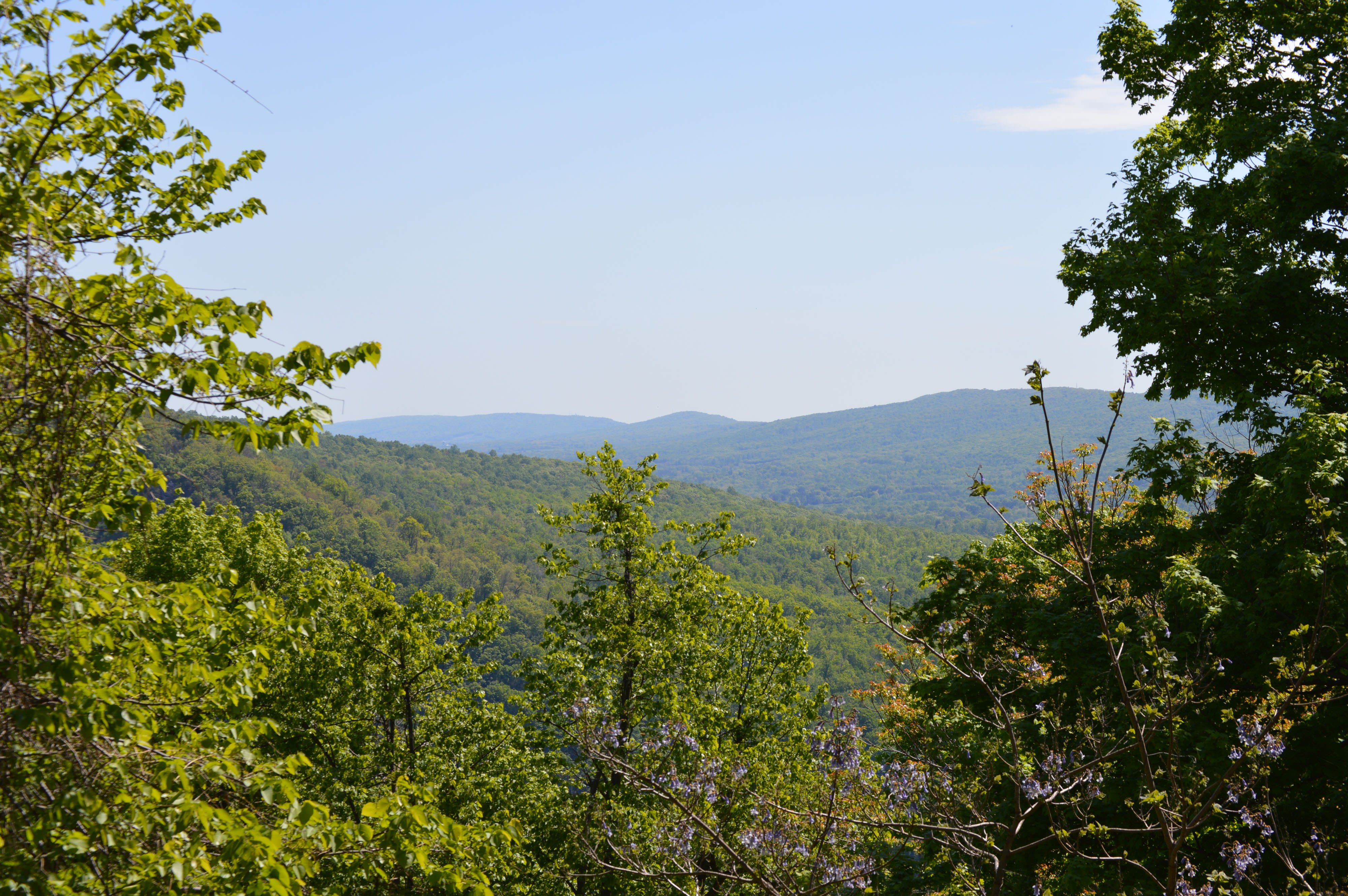
Ridgetop Revival at Cove Mountain
Last year with the support of our donors, we closed on a land deal to significantly expand the Hamer Woodlands at Cove Mountain Preserve. The purchase of 1,200 acres adjacent to the existing preserve quadrupled its size and—most importantly—filled a gap between existing conservation lands, creating a 14-mile protected stretch along the ridge.
Due to its north/south orientation, the 185-mile Kittatinny Ridge landscape serves as a critical climate refuge for species that are shifting their ranges north and upslope to find more hospitable conditions.
The Hamer Woodlands at Cove Mountain sit along one of the premier raptor migration corridors in the northeast, and even the world. Tens of thousands of hawks, eagles and falcons pass through each year alongside other notable species such as ruby-throated hummingbirds and monarch butterflies.
Invasive species, which are degrading the forest cover and threatening to create a weak link in the chain of migratory habitat, pose a major threat. To combat this, recently TNC partnered with Audubon Mid-Atlantic on a proactive restoration project.
The restoration project began by tackling invasives such as Tree of heaven, a rapidly growing species that is native to China. The felled trees were left onsite to naturally decompose and add organic material to the forest floor over time. Next, the team focused on two other highly disruptive plants that had moved into the area: Japanese stilt grass and mile-a-minute. A selective herbicide targeted the invaders and will prevent their seeds from germinating in the next growing season.
Forests are dynamic, ever-changing places. Surrounded by much more mature stands of hardwood forest, this restored section of ridgetop in the Hamer Woodlands at Cove Mountain Preserve—and the entire Kittatinny Ridge of which it is a part—will continue to provide life-sustaining benefits to both people and nature in the decades and centuries ahead.
-
In our ongoing efforts to protect an additional 15,000 acres of lands across the 185-mile-long Kittatinny Ridge landscape in Pennsylvania by 2025, TNC helped protect a 402-acre parcel in south-central Pennsylvania. The land provides more than three miles of ridge-top habitat for migrating birds and wildlife including the Ruffed grouse, Pennsylvania’s state bird. The land will be transferred to the Bureau of Forestry and become part of Buchanan State Forest, which will use the property to extend recreation access for the public.
-
Our chapter is growing fast. This year, we welcomed several new team members to increase our conservation capacity and help us achieve our strategic goals.
Our new Allegheny Front Land Protection Manager Denny Nurkiewicz will conduct landowner outreach, build partnerships and oversee research in Pennsylvania, Maryland and West Virginia within the Allegheny Front Focal Landscape in the Central Appalachians.
Nicole Wooten recently came aboard as our new Kittatinny Ridge land protection manager, working closely with the Pennsylvania Game Commission, the Department of Conservation and Natural Resources, local land trusts and landowners to protect critical climate-resilient lands.
Tyler Fisk, Land Protection Program Specialist, will support legal reviews of real estate acquisition projects as well as track grants and contracts and manage our portfolio of conserved lands.
Finally, Jake Leizear joined us this summer as our new conservation GIS Specialist, supporting Pennsylvania, Delaware and West Virginia with mapping, data management and analysis.
-
As of August 1, 2022, the Family Forest Carbon Program (FFCP) has enrolled 20,310 acres across 130 properties in Pennsylvania. Developed by the American Forest Foundation and The Nature Conservancy, the FFCP enables family forest owners to access climate finance from carbon markets, empowering them to help address climate change while earning income from their land.
Delaware River & Bay
Conserving the diverse waterways of Pennsylvania and Delaware to support biodiversity and build resilience against climate change.
From the Headwaters to the City
Chesapeake Bay Watershed
Protecting lands, waters and people along this critical watershed serving 18 million people across six states.

Moo-ving Forward on Emissions
TNC & agribusiness partners are developing a dairy-focused framework tailored to the Chesapeake Bay region. The goal is to increase the implementation of practices that improve water quality, reduce/mitigate greenhouse gas emissions and improve dairy farmer profitability in Pennsylvania. Currently, there are 5,430 dairy farms in Pennsylvania, representing 15.9% of the nationwide total.
Farmer Outreach Trains the Trainers
As part of the PA 4R Alliance, TNC has helped facilitate a series of trainings for agricultural advisors. Focused on key 4R principles (right source, right rate, right time and right place), the training will provide guidance on ways to keep nutrients on fields and out of our waterways. The kick-off session held earlier this year was a success with over a dozen agricultural advisors in attendance. Each of the participants in turn committed to working with 10 farmers to train them on 4R best practices.
In addition, we launched a program to help individual farms in Pennsylvania and on the Delmarva peninsula improve their nitrogen efficiency and timing of applications in manure and cover crop systems. The pilot, which rolled out to 25,000 acres, provides financial cost-share incentives and technical assistance to farmers.

Climate, Energy & Policy
Pennsylvania remains one of the top contributing states to climate change pollution, while Delaware’s low-lying land makes it particularly susceptible to inundation from sea level rise. Changes to our public policy are critical to addressing these problems. In 2022, our staff, members and volunteers advocated for historic investments in conservation and transformative climate policies.
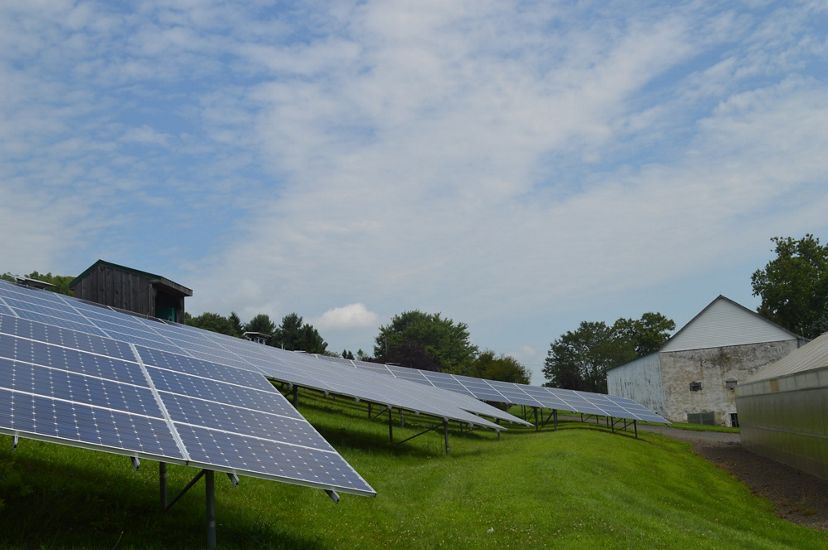
A Keystone Win for Pennsylvania Conservation
In July, the Pennsylvania General Assembly approved the largest allocation for conservation and clean water in over 15 years as part of the state budget. It includes more than $640 million for conservation, with $100 million for the Outdoor Recreation fund (formerly called Growing Greener). The budget also significantly invests in water quality with $220 million for a new Clean Streams Fund to support the efforts of Pennsylvania farmers to reduce water pollution.
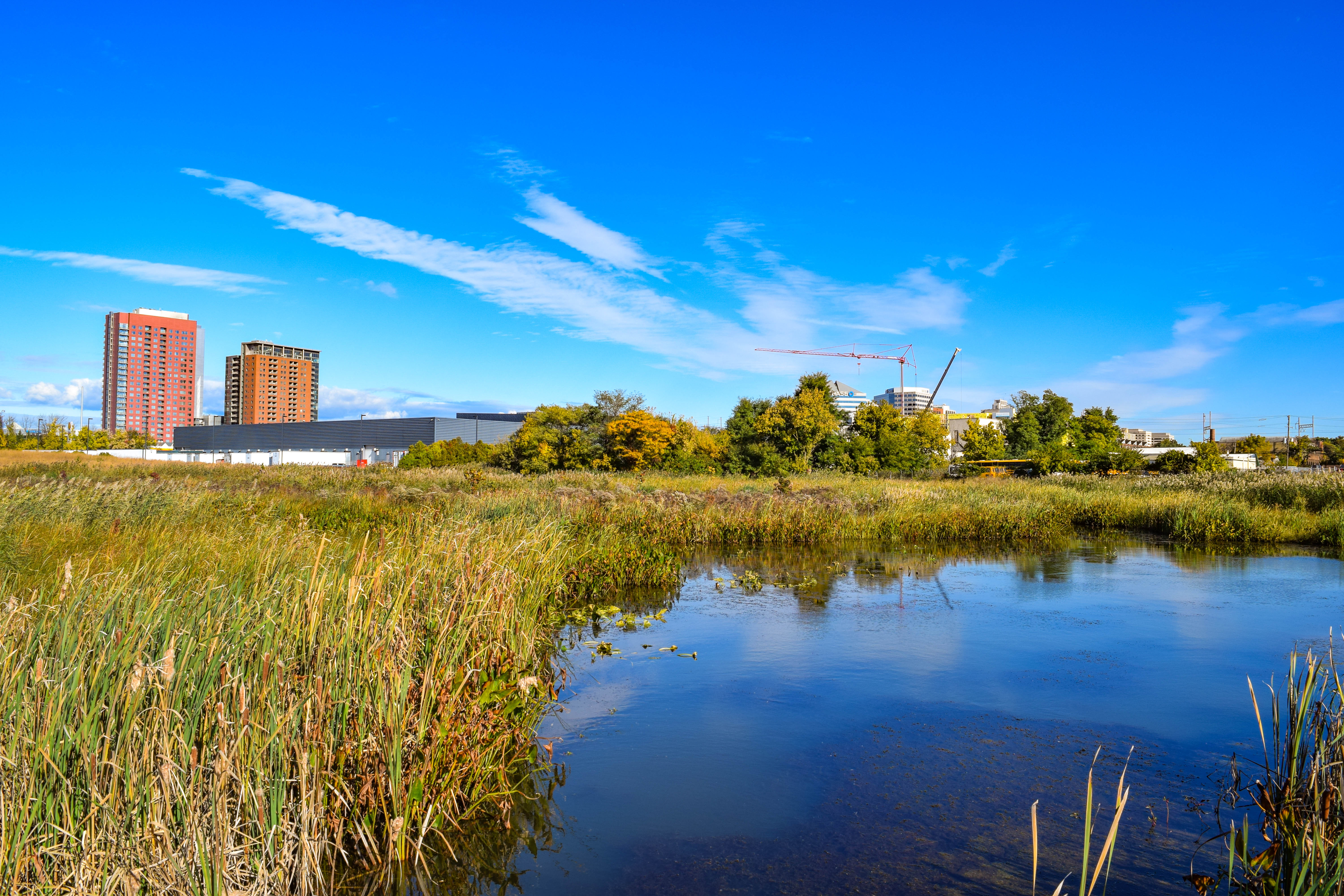
Conservation Investments for the First State
Following up on a historic $50 million clean water investment in FY 2022, Delaware’s General Assembly approved investments in open space funding. These included; $20 million in agricultural lands preservation; $66 million in state park infrastructure, shoreline, waterways, trails, and pathways; and, investments in wetland management, and stormwater control.
Quote: Neil D. Shah
I get to see nature through the eyes of my two boys as they experience its magnificence for the first time...I appreciate TNC’s non-partisan adherence to science, which informs the actions we can all take to preserve these spaces.
-
Early in the year, funding from the 2021 Infrastructure Investment and Jobs Act (IIJA) started to be released to communities. The bipartisan IIJA is helping to rebuild America’s roads, bridges and rails with an eye toward climate resiliency by creating new clean energy opportunities, expanding access to clean drinking water, addressing flooding and extreme weather events and investing in communities that have too often been left behind. Funding will be spread over five years and vary by state based upon size and number of projects. To date, Pennsylvania has announced $5.2 billion and Delaware has announced $500 million in IIJA- funded projects.
Another big legislative win made headlines worldwide this summer: the U.S. Congress passed the Inflation Reduction Act (IRA) in August. The bill puts the nation on track to reduce emissions by 40% by 2030. The IRA legislation invests about $370 billion in clean energy over the next 10 years across all sectors of the economy, from transportation to power to industry. It also includes a $25-billion investment in a range of agricultural and forest-focused natural climate solutions that harness nature’s ability to revitalize our air, land and water.
-
Climate and clean energy were also in our sights this year as we continued to push for more aggressive action to tackle climate change by supporting policies to accelerate the deployment of clean energy (including wind and solar power) and electric vehicles, as well as supporting limits on emissions from power plants. We also expanded our advocacy to connect with underserved communities and supported new policies to reduce air and water pollution in overburdened neighborhoods.
-
As the state with the lowest mean elevation in the country, Delaware faces significant challenges from climate change and rising waters. The state’s three counties directly influence how climate change will impact human and natural communities with their land use and planning decisions. For the first time in many years, TNC engaged on the county level advocating for increased waterway and habitat protections through buffers, planning that addressed flooding and water quality and permitting processes that supported the expansion of solar power.
"As a father, I get to see nature through the eyes of my two boys as they experience its magnificence for the first time. My wife and I are looking forward to revisiting our favorite areas with them and exploring new ones, too. I appreciate TNC’s non-partisan adherence to science, which informs the actions we can all take to preserve these spaces." - Neil D. Shah, Volunteer Advisor for TNC in PA/DE
-
Earlier this year, the Delaware Land Protection Coalition—of which TNC is a founding member—hosted the first-ever Conservation Day at Legislative Hall in Dover. Coalition members met with General Assembly members to seek additional funding for open space for the Department of Natural Resources and Environmental Control. The legislature later approved a $10 million increase in allocations for 2023, doubling the previous amount for a total of $20 million.
-
This summer, Kaelyn Kobosko served as the TNC Delaware Infrastructure Investment and Jobs Act (IIJA) communication, implementation and strategy intern, a position sponsored by the Delaware Sea Grant College Program with funds from the National Oceanic and Atmospheric Administration. She conducted research on how and when communities may access IIJA funding and helped develop a strategy to encourage the funding to be spent on climate mitigation and resilience while addressing the needs of underserved communities.
“This internship has given me the opportunity to gain valuable skills in policy and communication strategies,” says Kaelyn.
Kaelyn is in her junior year at Hood College in Frederick, MD. She is majoring in Sustainability Studies with minors in Biology and Economics.
Stewardship & Management
When TNC acquires a parcel of land, we commit both legally and ethically to steward that land. The chapter currently manages more than 74,000 acres across 31 nature preserves and 46 conservation easements in Pennsylvania and Delaware. Of those 31 nature preserves, 14 are open for public recreation, where our stewardship actions not only enhance the visitor experience but also place public safety as a top priority. Our preserves also provide engagement opportunities for hundreds of dedicated volunteers. Whether it’s helping build new trails, removing invasive vegetation or picking up trash, our volunteers are a huge asset to help us accomplish tasks both big and small.

Highlights Across PA & DE

Removing the O’Conner Dam
1893 - 2022
For over a century, the O’Conner Dam in northeastern PA was a notable feature of the Dick & Nancy Eales Preserve at Moosic Mountain. However, like all infrastructure, the dam had an expiration date.


The O’Conner Dam is built using stacked timbers and stone and serves as a water supply dam for the Mt. Jessup Coal Company.

Volunteers and TNC staff use siphons to manually lower the water level and reduce pressure on the dam.

Despite wintry weather, the dam is breached and the remaining water empties from the reservoir. The original stream bed of Sterry Creek is revealed.
Diversity, Equity, Inclusion & Justice
The Nature Conservancy is uniquely positioned to serve this planet and the people that inhabit it.

The Nature Conservancy in Pennsylvania & Delaware is committed to creating an equitable work culture and taking a thoughtful, inclusive approach to conservation. We will live out these values by supporting the voice and vision of local communities in pursuit of greater health and well-being, creating sustainable spaces where people and nature thrive together.
To that end, our chapter has integrated diversity, equity, inclusivity and justice (DEIJ) initiatives into our three-year strategic plan, striving to integrate these principles into all that we do. We have formed an internal working group, representing 26% of the staff, who meet regularly to develop ideas, share best practices and provide recommendations for implementation.
Tammy Bean, our recently hired director of People and Operations, will lead our internal DEIJ activities and work closely with TNC Global to develop and implement new and inclusive processes across hiring, operations support, procurement and trainings.

We are also honored that Anton Andrew, a member of our Board of Trustees, will serve as our inaugural DEIJ ambassador, helping to create a more inclusive environment for trustees by fostering an atmosphere of listening, learning and reflecting while also broadening our trustee pipeline.
"The Nature Conservancy is uniquely positioned to serve this planet and the people that inhabit it. And that starts with serving our staff and our communities. Because until we unequivocally demonstrate a commitment to diversity, equity, inclusion and justice, we remain a part of the problem. " says, Anton. "We must have the humility to accept and acknowledge that until our workplaces are living up to our own egalitarian values, we cannot claim to speak for those we work with or aspire to work with. Our vision of a world where people and nature thrive requires us to be a part of the solution."
Volunteers in Action
TNC volunteers were busy in the first half of 2022, coordinating trash clean-ups and trail work in Pennsylvania and Delaware and contributing over 1,800 hours to improving our preserves.

By the Numbers
-
7
7 successful group workdays along with independent monitoring of TNC lands and trash clean-ups to celebrate Earth Day.
-
2 Tons
2 tons of trash and debris removed from the Delaware River and Chesapeake Bay watersheds.
-
1st
1st annual staff project completed at the Tannersville Cranberry Bog Preserve, one of TNC’s original Pennsylvania preserves, to clear overgrown vegetation.
-
178
178 iNaturalist app observations submitted at TNC preserves, bringing the lifetime total to 3,550 observations of 1,489 species.
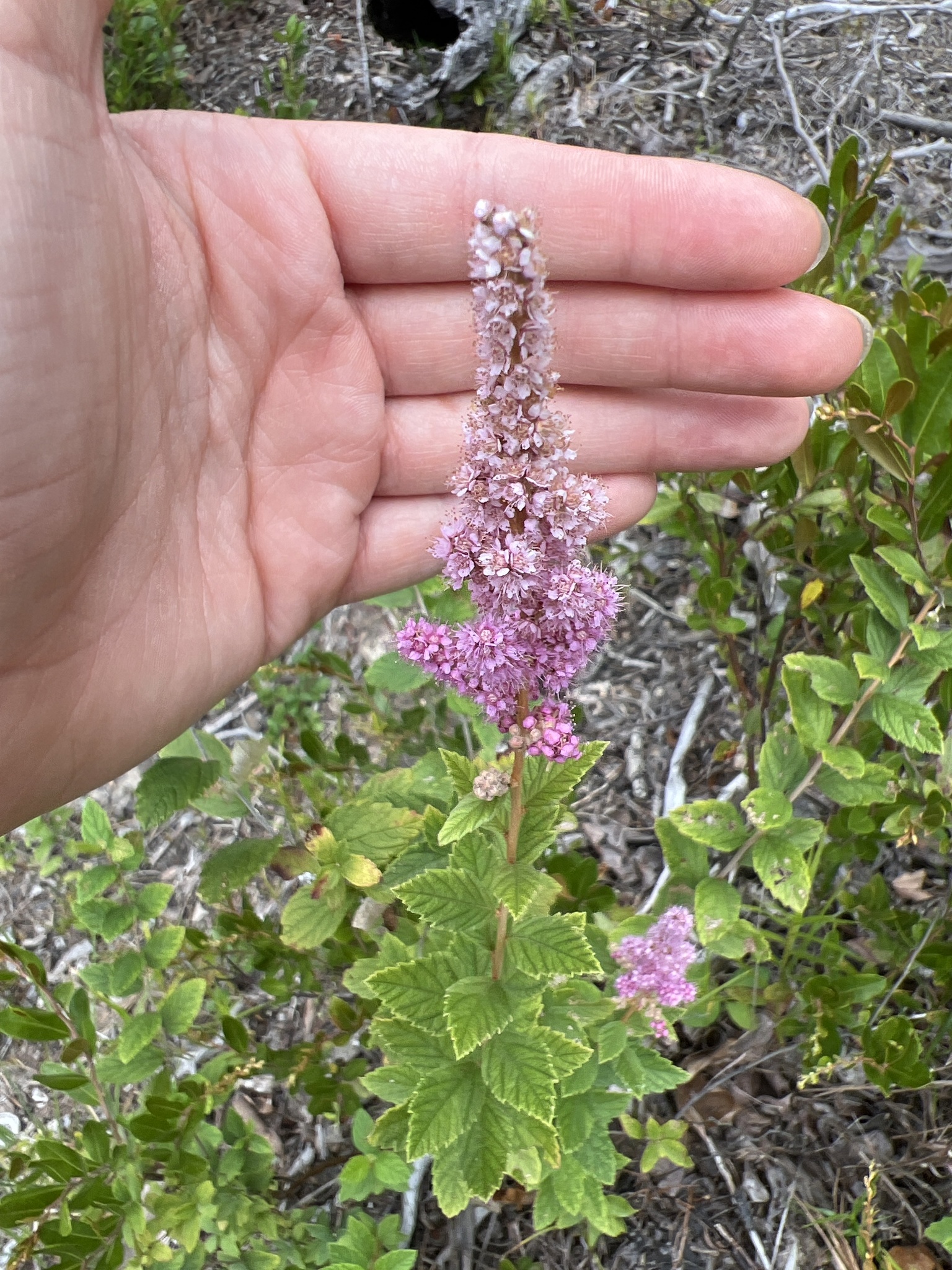
Volunteer Impact
Inspiring Youth Engagement in Conservation
Jenna Baljunas, a student at Chatham University who is majoring in environmental science with a minor in botany, spent her summer on a unique flora scavenger hunt.
“My volunteer work with TNC involved visiting the Dick and Nancy Eales Preserve at Moosic Mountain and exploring the area of the O’Conner Reservoir to monitor the new vegetation growth since the recent dam removal,” says Jenna. “Through finding and identifying the vegetation, I am helping TNC to plan for further restoration of the area.”
Using the iNaturalist app, Jenna tracked and identified 56 plant species in one area of the restoration site during the summer. The most dominant species were three-way sedge (Dulichium arundinaceum), narrow-pinnacle rush (Juncus brevicaudatus), red maple (Acer rubrum) and American burnweed a.k.a fireweed (Erechtites hieraciifolius).
In the course of her work with TNC, Jenna has seen real progress in the landscape.
“I have already seen so much change and the beginning of the area’s restoration,” says Jenna. “I am excited to see how much changes in years to come. I think it is so special to be able to hold the picture of what the land looked like at the very start of restoration in my head because I believe there will be a time in the future where the area will look established and significantly different.”
Quote: Marla Neeson
I was inspired while working with a group of 20-somethings to build new hiking trails in the Hamer Woodlands at Cove Mountain Preserve...You’re never too young or too old to make a difference.
Highlights Across PA & DE
Volunteers play a crucial part in TNC's success and we are delighted that our ranks of volunteers continue to grow. This year, volunteers across states came together to help us complete critical work at our preserves.






Outdoor Corps: Marla Neeson (third from left) joined TNC staff and Outdoor Corps members to build trails at the Hamer Woodlands at Cove Mountain this summer. © The Nature Conservancy

Trail Building : Susquehanna Appalachian Trail Club (SATC) members continued to improve and build new trails at the Hamer Woodlands at Cove Mountain. © George and Mary Ann Garbarino of the SATC

A Volunteer-led Bird Walk: Joyce Stone leads a bird walk at the Woodbourne Preserve in May. © Martha Denkenberger

Invasive Removal : Volunteers work to remove invasive plants at the Hamer Woodlands at Cove Mountain. © Molly Anderson/TNC

Delaware Workday: TNC’s Chief Marketing & Communications Officer Meg Goldthwaite (left) and TNC PA/DE’s Executive Director Lori Brennan at a volunteer event at Middleford North Preserve. © Molly Anderson/TNC
More Highlights
2022 at A Glance
-
Rare Butterfly Sighting in Delaware
This spring, a Hessel’s hairstreak butterfly (Mitoura hesseli) was observed on a TNC property in southern Delaware. Dr. Christopher “Kitt” Heckscher of Delaware State University confirmed the find on the Delmarva peninsula—the first in 27 years. This tiny green, black and white butterfly has a wingspan of only one inch and spends much of its time near the tops of Atlantic white cedar trees, its host plant. It is on Delaware’s endangered species list. Read More About This Discovery
-
Stormwater Management Initiative Launches
This spring, we launched the Resilient Communities Stormwater Initiative (RCSI) to manage stormwater runoff and advance community climate resilience goals in historically underserved neighborhoods using green stormwater infrastructure. In partnership with the Academy of Natural Sciences and Clean Water Action, the Initiative kicked off a series of community workshops that will take place across six Philadelphia neighborhoods. Learn More About Greening Our Cities
-
A Wind Win for Delaware
Every year, TNC’s global office offers grant opportunities to local chapters for clean energy work. In 2022, Delaware applied for the first time ever and received $60,000 to gather data on public opinions about wind power and then develop a communications strategy to increase support. The state is well-positioned to become a clean energy wind power hub in the Mid-Atlantic. Working with partners, TNC will design and implement a statewide poll and focus groups targeting diverse Delaware audiences.
-
Trustee Carol Collier Honored
PA/DE Trustee Carol Collier was recently honored with the Woman of Lifetime Achievement in Conservation award from PennFuture. With her tremendous accomplishments and tireless dedication to the field of conservation, the honor is well deserved. Congratulations, Carol! Celebrate This Year's Winners
Your Gift Makes Our Work Possible
This work has been made possible by your generous support. Together, we are making a difference in Pennsylvania, Delaware and beyond. Thank you.

Quote: Thomas Burnett
Seeing the sun, trees and sky; hearing the birds, and feeling the wind on my face makes me feel alive every day. I am so grateful for the work of TNC, not just to protect our environment, but to improve it for the benefit of all.
-
Driven by the mounting threats of climate change and global biodiversity loss, private philanthropists, public funders and conservation groups around the globe are racing to protect 30 percent of the Earth’s land, freshwater and oceans by 2030. Targets set by the Paris Agreement of 2015, the Convention on Biological Diversity and the U.N. Sustainable Development Goals outline a path forward, but we’ll need to act fast. The past decade was the hottest in history, so timing is critical and the challenge formidable.
TNC has committed to conserve 1.6 billion acres of land by 2030—and it starts right here in Pennsylvania and Delaware.
Together, with your generous support, we will restore and improve management of working lands and preserve the lands, water and air on which we all depend. Thank you for considering a generous gift to accelerate our work.
-
What if you could leave a legacy for tomorrow and support work for nature today?
The Nature Conservancy’s ability to take on global challenges and projects of enormous scopes is made possible by legacy gifts. Today we are facing the most complex challenges of our lives and there is critical work to be done now and for generations to come. That’s why two generous donors have come together to create the Legacy Fund Challenge. For a limited time, you can make a difference for nature now and in the future.
HERE’S HOW:
- Name The Nature Conservancy in your will, or as a beneficiary to a trust, retirement plan or insurance policy, or protect nature’s future with a planned gift that provides income to you for life.
- Let us know your plans.
- An immediate $1,000 gift will be released to The Nature Conservancy in Pennsylvania & Delaware in honor of your Legacy.
Please act today to secure a greener tomorrow.
Our development staff are here to answer any questions.
Contact us at padefundraisingteam@tnc.org or call 610-834-1323.
Download the Report
-
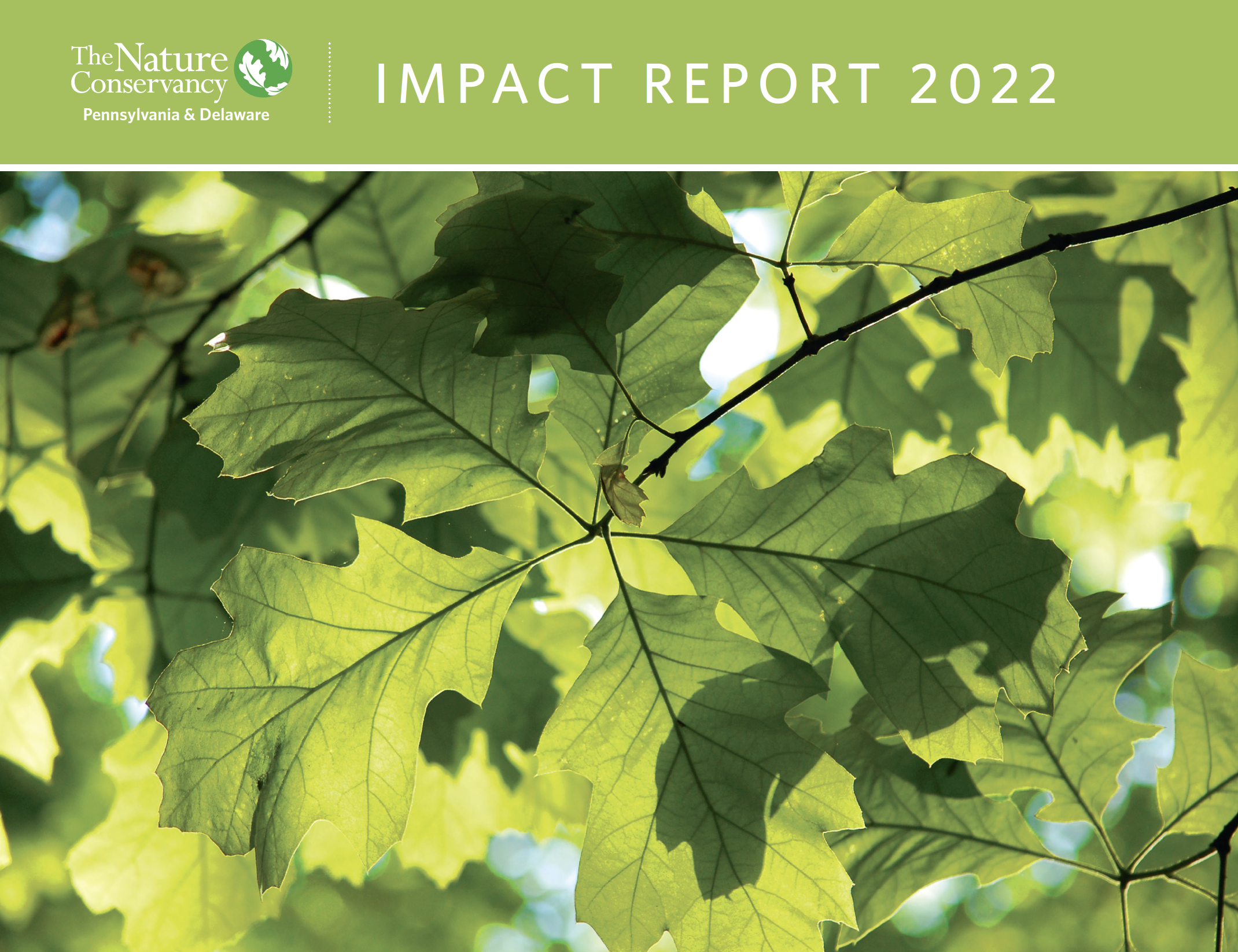
2022 Impact Report
A look at highlights and conservation successes across Pennsylvania & Delaware for 2022.
DOWNLOAD







